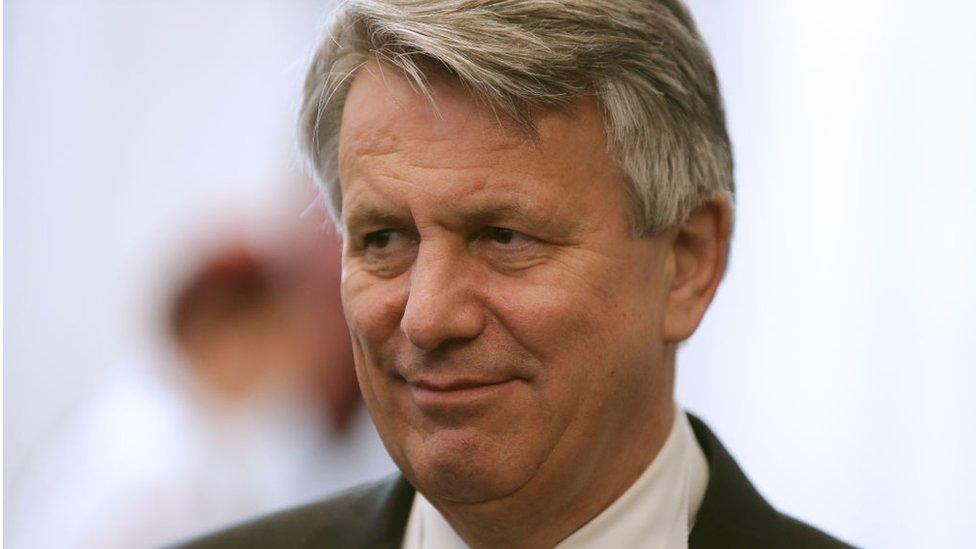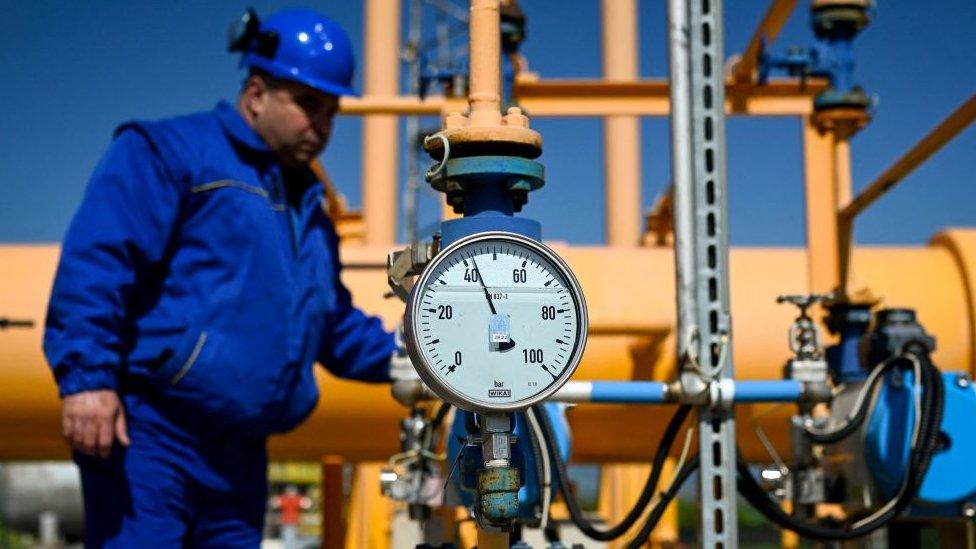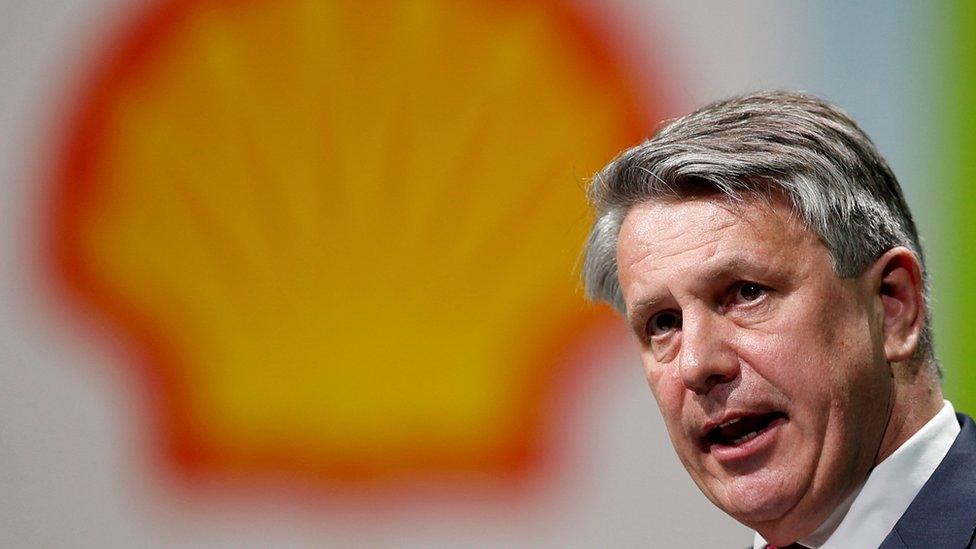Shell boss says taxing energy firms to help the poor is 'inevitable'
- Published
- comments

Taxes on firms within the oil and gas industry are "inevitable" to help the poorest people, the outgoing boss of Shell has said.
Ben van Beurden said that energy markets cannot behave in a way that "damage a significant part of society".
Households in the UK have been under pressure from rising energy bills as gas prices have soared.
The UK government under Liz Truss has pushed back against extending a windfall tax on oil and gas firms.
Last week, the EU agreed emergency measures to charge energy firms on record profits.
Energy prices jumped when Russia invaded Ukraine earlier this year, although prices had already been rising as economies began to recover after Covid lockdowns were lifted.
Speaking to the Energy Intelligence Forum, an oil industry event, Mr van Beurden said: "You cannot have a market that behaves in such a way - logically and effectively and everything else - that it's going to damage a significant part of society."
He said that "one way or another" there would be government intervention that "results in protecting the poorest".
"That probably means governments need to tax people in this room to pay for it - I think we just have to accept [that] as a societal reality," he said.
Mr van Beurden added that taxes can be brought in "smartly and not so smartly".
"There is a discussion to be had about it but I think it's inevitable," he said.
However, governments should not intervene to cap gas prices, he added.
The UK brought in a windfall tax on bumper oil and gas profits in May, but Prime Minister Liz Truss has ruled out extending it.
The tax - called the Energy Profits Levy - applies to profits made by companies from extracting UK oil and gas, and the Treasury expects it to raise about £5bn in its first year.
A UK Government spokesperson said: "The government has been clear that it wants to see the oil and gas sector reinvest its profits to support the economy, jobs, and the UK's energy security."
"We expect our Energy Profits Levy, announced in May, to raise an extra £7 billion in its first year which will help pay for the £400 energy bills discount for all households to help with energy bills from October.
"This is on top of our new Energy Price Guarantee, announced last month which will save the average household around £1,000 a year based on current energy prices from October."
Susannah Streeter, senior investment and market analyst, Hargreaves Lansdown, said Mr van Beurden's comments had "flung open a door on a windfall tax which the UK government had been trying to close".
"This will reignite the debate over how profits of energy giants should be taxed, just as a row rages about whether welfare spending will be hit to pay for the Truss administration's slash and spend policies," she said.
Production cut?
The price of Brent Crude oil has fallen from $120 per barrel in May to about $90 per barrel, although these are still the highest prices since 2014.
Nevertheless, the Opec oil cartel is expected to announce a cut in output at a meeting on Wednesday, a decision which is designed to support prices.
"Such a decision would be difficult to justify fundamentally, as the oil market suffers anything but a surplus," said Norbert Rucker, head of economics at private banking firm Julius Baer.
"The petro-nations seem willing to exploit their power to artificially prop up oil prices, increasing the tensions with the oil consumers."
- Published30 September 2022

- Published15 September 2022

- Published22 October 2024
